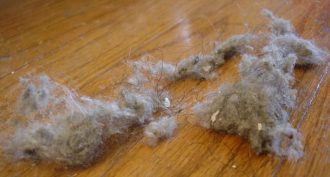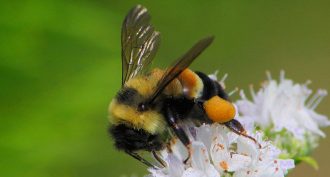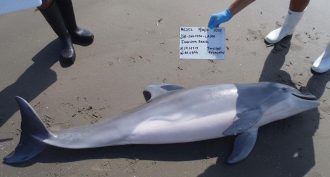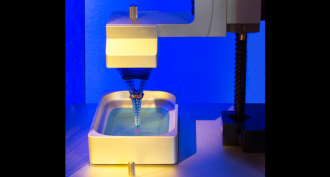Beth Mole

All Stories by Beth Mole
-
 Environment
EnvironmentStore-receipt chemicals taint blood and urine
Cashiers who handle receipts absorb potentially risky levels of chemicals that coat the receipts, a new study shows.
-
 Environment
EnvironmentCan house dust make us fat?
Materials found in dust, including common fats, may trigger human fat cells to grow. This might promote weight gain, some scientists worry.
-
 Animals
AnimalsClimate change shrinks bumblebee’s range
Due to global warming, bumblebees are disappearing from their southernmost homes. But their northern borders are expanding to compensate. This leaves the insects with less territory.
-
 Chemistry
ChemistrySecret to rose scent surprises scientists
Scientists discovered the molecular tool that roses use to make fragrance. And it wasn’t what they expected.
-
 Chemistry
ChemistryNews Brief: Common campfire style is still the best
Humans tend to build fires in the same way, in a pyramid as tall as it is wide. New calculations show this shape burns hottest.
-
 Environment
EnvironmentGulf oil spill: Still poisoning dolphins to crickets
Once the 2010 Deepwater Horizon spill ended, oil continued to harm animals in the Gulf of Mexico. Five years later, it still may not be over, biologists worry.
-
 Environment
EnvironmentVaping may harm the lungs
E-cigarettes are the most widely used tobacco product among U.S. teens. But emerging data suggest vaping can harm the lungs.
-
 Climate
ClimateWarming’s role in extreme weather
Extremes in temperature and precipitation will be more common as global temperatures rise. Human-led climate change is largely to blame, a new study finds.
-
 Chemistry
ChemistryNews Brief: Wash removes nano germ-killers
Manufacturers coat many fabrics with silver nanoparticles to kill bacteria. But when those items get laundered it can be bye-bye germ killers.
-
 Health & Medicine
Health & MedicineFracking wastes may be toxic, tests show
Fracking operations have been polluting the environment. Some wastes have hormonal effects. Studies in mice now show that prenatal exposures to these wastes can trigger subtle but disturbing organ impacts.
-
 Chemistry
ChemistryCooking up life for the first time
The basic components for life could have emerged together nearly 4 billion years ago on the surface of Earth, chemists report.
-
 Chemistry
ChemistryGoopy tech leaves older 3-D printing in its wake
A new way of 3-D printing combines light and oxygen to create solid objects from liquid resin. The method quickly creates detailed objects.